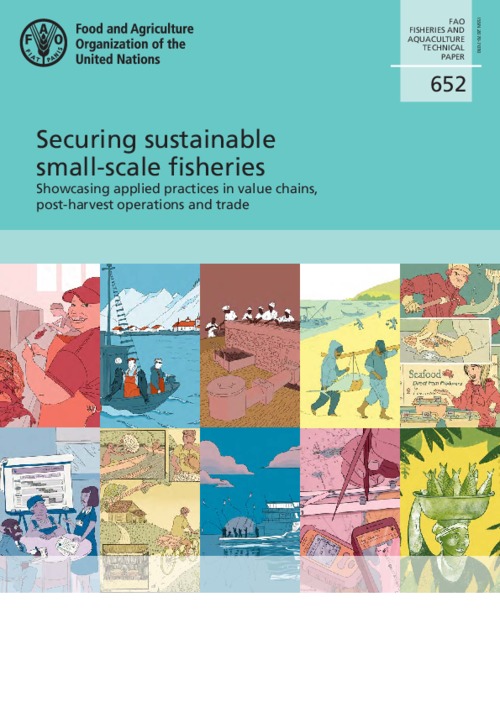Fish traders and processors network: Enhancing trade and market access for small-scale fisheries in the West Central Gulf of Guinea

From 2014 to 2018, the Fish Trade Project (a joint project of the WorldFish Center, the African Union Interafrican Bureau for Animal Resources, and the New Partnership for Africa’s Development) implemented trade and market-driven initiatives to support small-scale fisheries in the subregion of the Fishery Committee for the West Central Gulf of Guinea (FCWC). One initiative was the establishment of the FCWC Fish Traders and Processors Network (FCWC FishNET), a platform composed of small-scale traders and processors, with the objective of informing policy gaps and designing market-driven incentives to leverage the collective power of its members to facilitate regional trade. This case study reviews FCWC FishNET activities to reflect on the role of socio-economic trade networks in small-scale fisheries, in line with specific recommendations of Chapter 7 of the Voluntary Guidelines for Securing Sustainable Small-Scale Fisheries in the Context of Food Security and Poverty Eradication. Secondary data supplemented by primary survey were used. The study emphasizes FCWC FishNET’s activities in promoting quality smoked fish products, reducing post-harvest losses, and popularizing the FAO-Thiaroye processing technique to eliminate the health threats posed by the Chorkor kiln. Also discussed is the use of Fisheries Learning Exchanges to promote better fish handling, processing and packaging techniques as a means of adding value and diversifying trading channels for fish products. The study finds that FCWC FishNET has engendered greater trust among network members, allowing traders to conduct business with each other on a credit basis and improving the overall communication and business experience. Similarly, it has facilitated initiatives to reduce post-harvest losses by improving processing and trading facilities. Finally, the case study emphasizes the compelling role of trade networking in small-scale fisheries discourse while providing lessons to practitioners and policymakers in fisheries.
Permalink
Date Available
Type
Publisher
ISSN
2070-7010
Copyright
CC-BY-NC-SA-4.0
Research Themes
Topics
Language